Energetic Forum Kicks Off 3rd District Race
Four Candidates Talk Oil, Infrastructure, Housing
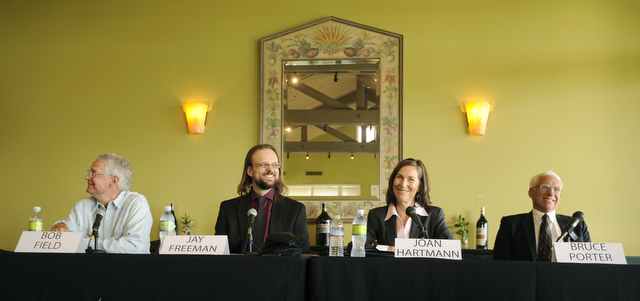
Four candidates vying to replace outgoing 3rd District Supervisor Doreen Farr faced off Wednesday afternoon for the group’s first energetic forum. Over lunch at the Glen Annie Golf Club, the Goleta Chamber of Commerce–sponsored event featured the contenders sparring over several of the county’s meat-and-potato issues — oil, infrastructure, and housing.
The supervisorial hopefuls include Bruce Porter, an army veteran and Santa Ynez Valley Union High School District boardmember; Joan Hartmann, a retired environmental attorney and former college professor; Jay Freeman, a left-leaning Isla Vista activist; and Bob Field, a retired Silicon Valley entrepreneur now active in valley issues.
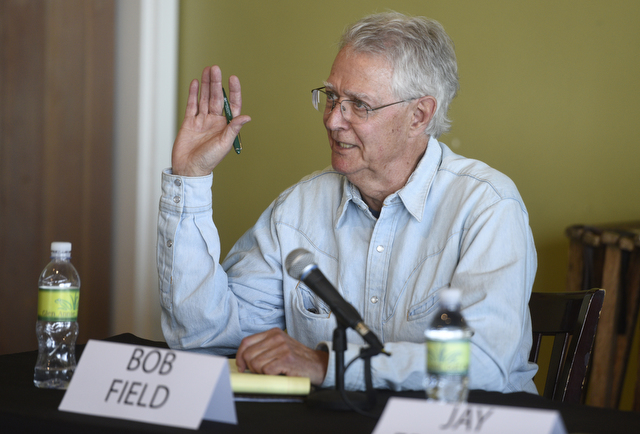
Tensions heightened when GOP county chair Dale Francisco pointedly asked Field: Why did he jump into the race so late — just last week — after he donated $1,000 to Hartmann’s campaign in December? Field said he was not happy with the other “right of center” candidate — referring to Porter — and he has spent 15 years immersed in 3rd District issues. “I think she’d be a fine supervisor,” he said of Hartmann. “This is just the next step for me,” said Field.
The sprawling 3rd District encompasses Isla Vista to the Santa Ynez Valley to Guadalupe, and it is home to about 42,380 registered voters. There are 8 percent more registered Democrats than Republicans, with 30 percent declining to state a party preference. Porter, Hartmann, and Field have all lived in the valley for 15 years or so. Freeman recently moved to Isla Vista after living in its outskirts for about 15 years.
Refugio State Beach, the site of last May’s oil spill, falls in the 3rd District. The impact of the ruptured pipeline — better known as Line 901 — on the county’s property tax revenues since it was shut down after the spill has proved to be a divisive issue.
While County Counsel Mike Ghizzoni has previously said both state and federal law allows public agencies to claim a net loss of taxes caused by an oil spill, some oil industry proponents have doubted the county will be able to recover such costs in part because county officials prohibited ExxonMobil from hauling oil by truck, which would have allowed them to continue operating. Land-use attorney Peter Brown, saying that tax revenues have “plummeted,” asked the candidates what the effect has been on the county.
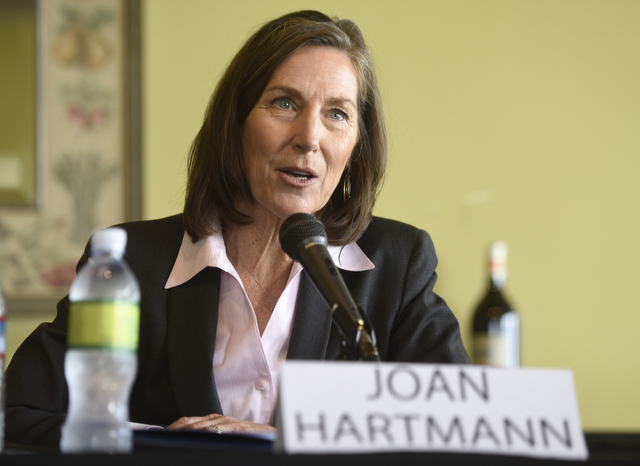
Hartmann argued just a fraction of the county’s property tax revenue stemmed from oil production while places such as Kern County get 30 percent from oil — problematic during a natural disaster. She contended public agencies losing out on property tax revenues — such as the Goleta school district — would be able to file a claim with Plains All American Pipeline, the company responsible for the spill. This probably will not be hashed out until next summer, she added.
Porter, on the other hand, was adamant that the loss in tax revenue would have a significant impact on certain school districts. He contended the Goleta school district alone would lose $4.6 million. Even if the school district filed a claim against Plains, he argued, it might not see the money for some time. Hartmann, meanwhile, was shaking her head in opposition.
Auditor-Controller Bob Geis previously said the impact of tax revenues on affected school districts — those that are “basic aid” and get to keep most of their excess money from property taxes — would not be known until this summer. (Geis has also noted the drop in oil prices has been to blame for a decrease in tax dollars for certain school districts in recent years.)
Field agreed with Hartmann that the lost tax dollars should be recoverable, adding the question “feels a little more like a religion test.” “I like oil,” he said. “I have investments in oil. I am fine with producing oil … but they need to clean up their garbage.”
Freeman said the issue was “definitely a problem,” noting pipelines are safer than other ways to transport oil. “We need to figure out to do it safely,” he said. “We need to not be reliant on the oil company and the state to fix” the pipeline, he added.
A question on funding infrastructure improvements was also contentious. Hartmann criticized Measure M — Supervisor Peter Adam’s controversial 2014 initiative that would have dedicated millions to refurbish the county’s roads, parks, and buildings — arguing it would have “bankrupted the county.” “We don’t want to invest so much in infrastructure we don’t have enough for other needs,” she said, noting the supervisors pledged $100 million over the next decade on maintenance. (Adam was the only county supervisor to support Measure M, which was rejected by voters by a slim margin; many people credit Adam for drawing attention to the issue.)
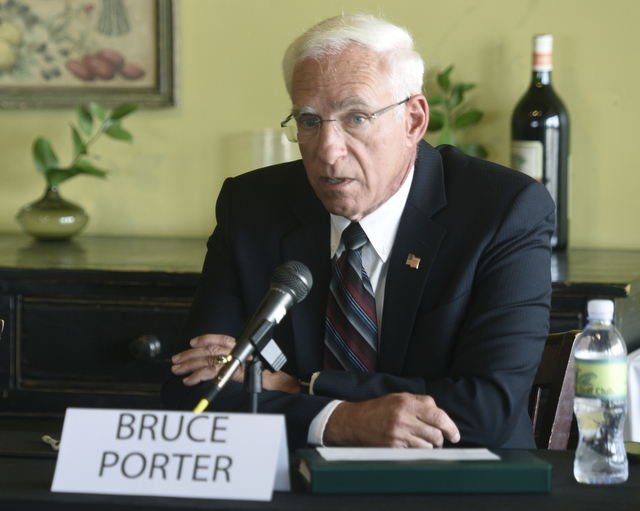
Porter sounded a bit like Adam on the issue; he contended the county is behind on maintenance in the sum of tens of millions of dollars. He called it one of the county’s three basic functions (along with safety and “help[ing] those who can’t help themselves”). The county, he added, needs to take care of its infrastructure “the same way we take care of our own homes.”
Also channeling Adam, Field said by ignoring our “infrastructure debt,” the county is doing “quite a bit of damage to our kids and grandkids.” He called the county budget a “zero-sum game,” adding it spends too much money on itself. There are “ways to cut that back and divert those funds to the infrastructure problem,” he said. Freeman called for an oil severance tax. He acknowledged taxes are unpopular but deemed such methods necessary as cars have become more efficient.
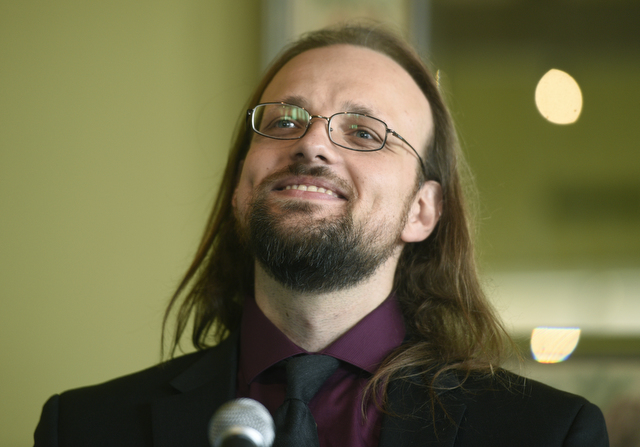
On housing, Freeman most distinctly separated himself from the others. He said as more people want to live here, “We need more housing for people.” He admitted the desire not to develop open spaces but added, “Density is not always a problem; it can be an opportunity; [it] can decrease reliance on cars.”
Hartmann called housing a national problem. “We all know we can’t build our way out of this,” she said, noting Santa Barbara is sandwiched between the mountains and the sea. She called for more mixed-use projects while preserving and enhancing existing housing. Field seconded her approach. Freeman dismissed mixed-use projects as semantics. “That’s building,” he said. Porter said Santa Barbara is a “victim of its own success.” “Certainly we don’t want to expand to the Gaviota coast,” he said, suggesting the county could take advantage of space in North County.



